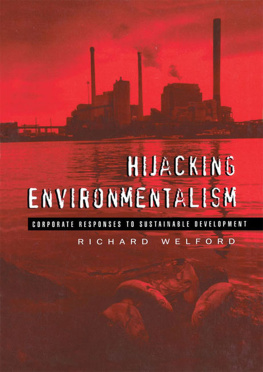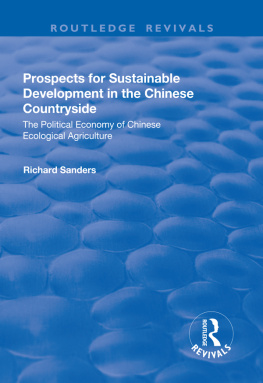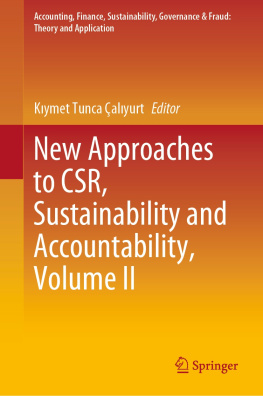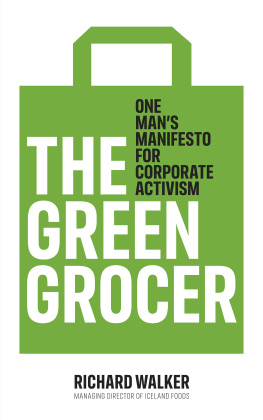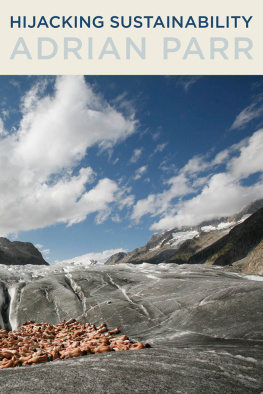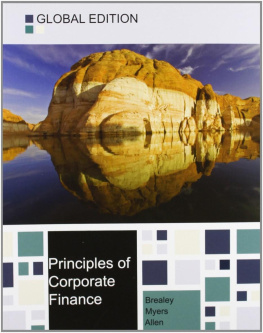Richard Welford - Hijacking Environmentalism: Corporate Responses to Sustainable Development
Here you can read online Richard Welford - Hijacking Environmentalism: Corporate Responses to Sustainable Development full text of the book (entire story) in english for free. Download pdf and epub, get meaning, cover and reviews about this ebook. year: 1997, publisher: Earthscan Publications, genre: Politics. Description of the work, (preface) as well as reviews are available. Best literature library LitArk.com created for fans of good reading and offers a wide selection of genres:
Romance novel
Science fiction
Adventure
Detective
Science
History
Home and family
Prose
Art
Politics
Computer
Non-fiction
Religion
Business
Children
Humor
Choose a favorite category and find really read worthwhile books. Enjoy immersion in the world of imagination, feel the emotions of the characters or learn something new for yourself, make an fascinating discovery.
- Book:Hijacking Environmentalism: Corporate Responses to Sustainable Development
- Author:
- Publisher:Earthscan Publications
- Genre:
- Year:1997
- Rating:5 / 5
- Favourites:Add to favourites
- Your mark:
- 100
- 1
- 2
- 3
- 4
- 5
Hijacking Environmentalism: Corporate Responses to Sustainable Development: summary, description and annotation
We offer to read an annotation, description, summary or preface (depends on what the author of the book "Hijacking Environmentalism: Corporate Responses to Sustainable Development" wrote himself). If you haven't found the necessary information about the book — write in the comments, we will try to find it.
Richard Welford: author's other books
Who wrote Hijacking Environmentalism: Corporate Responses to Sustainable Development? Find out the surname, the name of the author of the book and a list of all author's works by series.
Hijacking Environmentalism: Corporate Responses to Sustainable Development — read online for free the complete book (whole text) full work
Below is the text of the book, divided by pages. System saving the place of the last page read, allows you to conveniently read the book "Hijacking Environmentalism: Corporate Responses to Sustainable Development" online for free, without having to search again every time where you left off. Put a bookmark, and you can go to the page where you finished reading at any time.
Font size:
Interval:
Bookmark:
Eloy Casagrande Jr
David jones
Tarja Ketola
Nick Mayhew
Pall Rikhardsson

Earthscan
2 Park Square, Milton Park, Abingdon, Oxon OX14 4RN
711 Third Avenue, New York, NY 10017
Practitioners and researchers must always rely on their own experience and knowledge in evaluating and using any information, methods, compounds, or experiments described herein. In using such information or methods they should be mindful of their own safety and the safety of others, including parties for whom they have a professional responsibility.
The Earth does not belong to man;
man belongs to the Earth.
This we know.
All things are connected
like the blood which unites one family.
All things are connected.
Whatever befalls the Earth
befalls the sons of the Earth.
Man did not weave the web of life,
he is merely a strand in it.
Whatever he does to the web
he does to himself.
Puget Sound, 1854
Font size:
Interval:
Bookmark:
Similar books «Hijacking Environmentalism: Corporate Responses to Sustainable Development»
Look at similar books to Hijacking Environmentalism: Corporate Responses to Sustainable Development. We have selected literature similar in name and meaning in the hope of providing readers with more options to find new, interesting, not yet read works.
Discussion, reviews of the book Hijacking Environmentalism: Corporate Responses to Sustainable Development and just readers' own opinions. Leave your comments, write what you think about the work, its meaning or the main characters. Specify what exactly you liked and what you didn't like, and why you think so.

